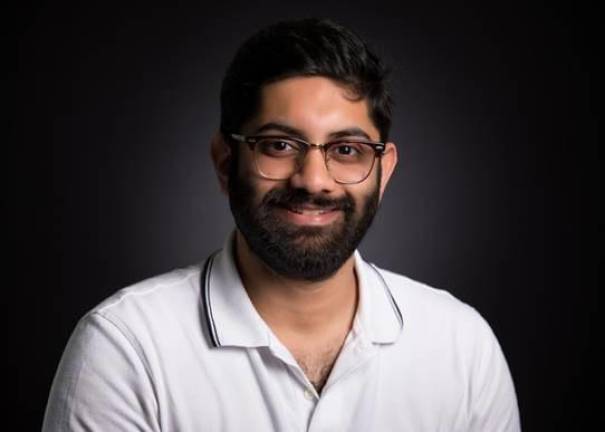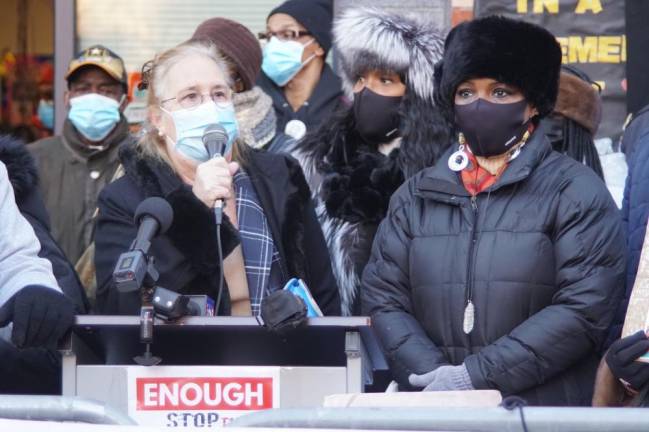Changing the Mix at Community Boards
As the Feb. 22 application deadline for new members nears, a push for greater diversity. What the six candidates for Manhattan borough president would do


In a borough where community board leadership has historically skewed white and older, Kyle Athayde is an outlier. He’s 29, a child of Indian immigrant parents, and he has firsthand experience of some of the most urgent issues in the district.
“When I was younger, I had experienced homelessness,” said Athayde, who was elected as the chair of Community Board 6 on the East Side in November. “I was bouncing from house to house to house each week, living all over the city with friends from our church.”
Athayde’s ascendance on the board is in part a product of the push in recent years to diversify the community boards, which, while they do not enact binding legislation, do wield great influence on important neighborhood decisions, making it crucial that these volunteer-led bodies reflect the demographics of their respective districts. In 2018, New Yorkers voted to change the city’s charter to collect demographic data of board members in hopes of bolstering the diversity. Athayde sees his election as a sign of greater progress to come, and as the Feb. 22 application deadline for new Manhattan members nears, he’s made it a goal as chair to recruit members who embody diversity in an even more holistic sense.
“Quite often on community boards, we don’t see the people affected by the resolutions, or eventually the policies, having a seat at the table,” Athayde said in an interview. “One of my big priorities is to encourage people who don’t feel like there is a place for them, or that there are only certain venues that they can go to in order to speak their mind – and I want to encourage that community board is one of those places.”
Complicated Formula
When Manhattan Borough President Gale Brewer – who, in partnership with City Council members, appoints applicants to Manhattan’s 12 boards – talks about choosing the right appointees it’s like she’s tinkering with a complicated mathematical formula. In her case, X equals a board that is both demographically representative of the district in terms of race, gender, age, sexual orientation, employment, education, type of housing, etc., but also has the proper expertise in areas of finance, land use and so much more.
“There are a lot of ways you can be diverse,” said Brewer. “And some of them are hard.”
So near the start of her tenure, years before it was mandated by the charter, Brewer started collecting demographic data and publishing it online. The public can find the breakdown of age, race and ethnicity, sexual orientation, gender, education, employment background, and residence type for the 50 members of each board in real time. She uses the data when filling vacancies to see what demographic or expertise components each board might be missing.
Brewer tried to inject more youth into the community boards as well, opening up the process to 16- and 17-year-old high school students in the last few years.
But the biggest challenge in creating a diverse board, is attracting a diverse pool of candidates. Brewer, who is in the final year of her term, advises that her successor needs to go big on outreach in order to be successful.
“We did the best we could on outreach, but it is a constant, constant effort,” said Brewer. “It doesn’t end, and outreach is not just sticking something up on the net.”
Future of the Boards
In recent interviews with Our Town, the six candidates vying to succeed Brewer as borough president offered a variety of ideas as to how they would bring greater diversity to Manhattan’s community boards.
State Sen. Brad Hoylman, whose district encompasses parts of the UWS, Hell’s Kitchen, Midtown, Chelsea and lower Manhattan, said the borough’s boards currently underrepresent Latinx, Asian American and Pacific Islander, and transgender residents.
“We need to fix that,” he said, adding that he would recruit more public school teachers, NYCHA residents, people without college degrees, nurses and doctors in public hospitals, and small business and restaurant owners. “Those perspectives are critical, especially as we seek to rebuild after the pandemic.”
Council members Mark Levine and Ben Kallos have both served on community boards in the past and already have experience in making appointments in their respective districts.
“I’m really proud of the incredible diversity of our appointments on three boards community boards,” said Levine, who represents parts of the Upper West Side, Morningside Heights and Washington Heights. Levine said boards are slow to represent emerging communities within their districts, and would try to change that through greater outreach, particularly in schools to attract younger membership. He also wants to add one question to member applications: ‘Do you own a car?’
“I do feel that people for whom getting around means mass transit, walking or taking a bicycle are underrepresented on a lot of boards,” said Levine.
In making his appointments, Kallos said he’s valued diversity, youth as well as dedication. He believes Community Board 8 in his district is more diverse now than when he was first elected to Council as a result of his going to schools, union meetings, public housing, women’s groups and by holding public meetings with constituents every first Friday of the month as part of his outreach strategy.
“There’s now more representation by people with disabilities. There is more representation from working families,” said Kallos, adding that he would perpetuate this progress more broadly as BP.
Lindsey Boylan emphasized depoliticizing the appointment process.
“Everywhere I go, I hear people talk about how politicized these equations are, and how loyalists are put in place to really set into play whatever the City Council member wants,” said Boylan. “I think that ends up losing trust in a lot of communities.”
Boylan, who fell short in a challenge to Congressman Jerry Nadler in November, said even with these volunteer boards, residents can feel like it’s an “insider’s sport” for members of political clubs. To remedy this, Boylan said she would be emphasizing that she isn’t looking for the “usual suspects,” but people who are invested in outcomes in their community.
Elizabeth Caputo, who has been a longtime member of Community Board 7 and previously served as chair, said boards need to be more flexible for working people and people with children. To that end, Caputo said boards need to continue on with virtual meeting options after the pandemic to accommodate people who are unable to attain childcare or who are differently abled.
Additionally, Caputo said that as chair she made sure to promote members of minority groups into leadership positions, and believes that needs to continue in order to achieve meaningful diversity.
Kimberly Watkins, who currently serves as President of Community Education Council, is the only candidate who hasn’t served on a community board, and she has a pretty radical idea on how to reform the system: making membership an elected office.
“From regular people in the communities who are not a community board member ... there’s a real sense that our city is not very democratic because so many people that make decisions for our city are appointed by people, as opposed to elected by people,” Watkins said.
Watkins said this kind of reform would require a big conversation and a gradual move toward elections, but she said if the city is interested in real representation and root out corruption, it would be an important reform to put in place. If elected, Watkins said she would introduce legislation to do so.
“Decision making in our city has become so questioned by the people, especially as it pertains to issues of land use and development,” said Watkins. “I think the time to democratize as much as possible is now.”
“One of my big priorities is to encourage people who don’t feel like there is a place for them, or that there are only certain venues that they can go to in order to speak their mind – and I want to encourage that community board is one of those places.” Kyle Athayde, chair of CB 6